Floor TV stands are a great way to display your TV. They can be used in many different rooms, including the living room and bedroom. A floor TV stand is usually made from wood or metal, but some people also choose glass stands for their home. If you're looking for a new floor TV stand, here's what you need to know:
What is a floor TV stand?
A floor TV stand is a piece of furniture that holds your television. It is typically placed on the floor in front of or next to a wall. It has a base that supports the weight of your TV, and it may have some type of panel or back to hold the television.
What are the benefits of a floor TV stand?
There are many benefits to having a floor TV stand. The first benefit is that you don't have to drill holes in the wall, which saves time and hassle. Secondly, it's easy to move around because it has wheels on the bottom and can be moved with ease. A third advantage is that you can place it anywhere around your home or office because there's no need for power outlets or cords!
Lastly but not leastly, a floor TV stand can be used as all sorts of things: a media unit, a console table (great for small spaces), or even as an accent piece for your living room!
Which Materials are used in a Floor TV Stand?
You can buy a stand made of wood, metal, glass or plastic. The type of material used in your TV stand will determine the price and durability. Some materials can rust or crack if not handled carefully. Other materials like acrylic and copper are more expensive but they last longer and look more attractive than cheaper ones like plastic or steel. Wood is another popular choice because it gives off a warm feel in your living room while making sure that your floor stands sturdy enough to support both the TV set and other items that may be placed on it when not watching movies or sports events together as family members!
Wooden floor stands have become very common over time due their simplicity which makes them easy to install without any drilling required (although there are some wooden models out there that require drilling).
Some people still prefer wooden floors but if you don't want one then you should consider getting one made out of metal instead since these types tend not only cheaper but also lighter than alternative choices such as concrete blocks which means less stress being put onto walls/floors during installation process - especially if installed properly!
What TV Sizes Suit a Floor TV Stand?
You should know that when you buy a floor TV stand, you'll need to consider the size of your TV. If you have a 50-inch flat screen, consider buying a floor TV stand that is big enough to accommodate it.
You should also consider the size of your room in relation to the size of your floor TV stand and what type of look or feel that you want for your home entertainment area. For example, if space is limited in a particular room (such as an attic), then perhaps an entertainment center with glass doors might be better suited than one made from wood but still incorporate some kind of storage area (like cabinets). On the other hand, if there are multiple rooms adjacent to each other containing couches and chairs along with television sets mounted on walls at different heights from each other (say in three rooms), then perhaps all these televisions could be accommodated by purchasing one large flat screen monitor instead so they would all have similar quality viewing experience while minimizing clutter - although this option will require more money upfront since larger monitors tend not come cheap!
How to Choose Your Floor TV Stand
It is important that you choose a floor TV stand that is the right size for your TV. This will ensure that it stands out and does not get lost in the room or make it look cluttered.
Choose a floor TV stand that will match your decor, so that it blends into the rest of your living room instead of sticking out like a sore thumb.
Choose one that suits your space so it doesn't take up too much space or leave areas looking empty and bare. If you have lots of items on display around the room then consider using one with open shelves so people can see all those cute figurines rather than having them hidden away behind closed doors or cabinets (or even worse if they're tucked away inside).
Choose one which suits both your budget and style preferences because there's no point spending money on something which isn't going to look good in years' time!
Shop carefully for your next floor TV stand.
You can’t go wrong by buying a floor TV stand that suits your needs.
- Consider the size of your TV, and how many people will be watching it. If you have a large flat-screen television, consider one with plenty of space for movies and sports games. Similarly, if you plan to use the TV as a computer monitor or gaming console, think about whether there is enough room for all these components together in an entertainment unit.
- Take into account the size of your room and where you want to place the TV. Look at what kind of setup works best with different kinds of flooring – from hardwood floors to carpeting – and keep in mind that some models offer better access than others (for example: some allow for easy cable management).
- Consider what you will be using it for: does this mean primarily watching movies or playing games? This will help determine whether an entertainment unit offers enough storage space or whether more storage would be needed elsewhere in the room (like underfoot).
We hope this guide has given you an idea of what to look out for when shopping for a floor TV stand. As we mentioned above, there are many factors to consider when choosing the right one for your needs. We recommend starting with the basics: do you want something that’s going to be sturdy enough to hold up against frequent use? Do you want something that looks great in your living room or bedroom? Does size matter? These are just some of the questions we would ask ourselves before making any final decisions about which type of floor stand is best suited for our home entertainment needs.
















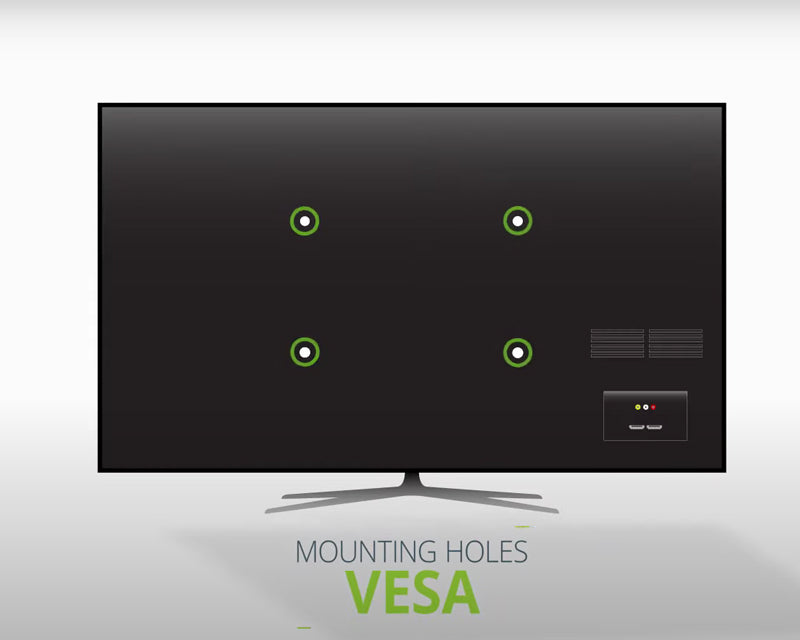
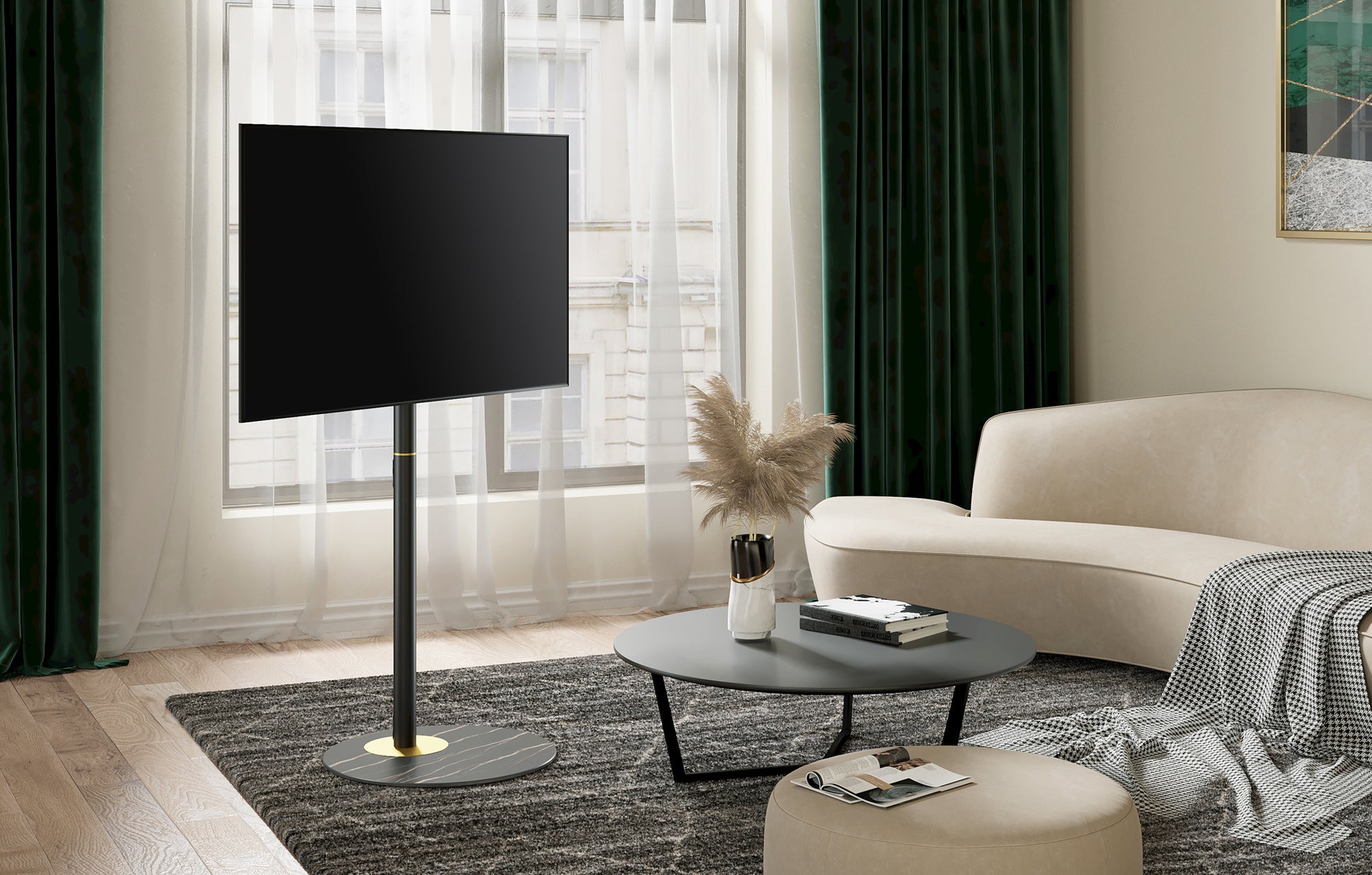
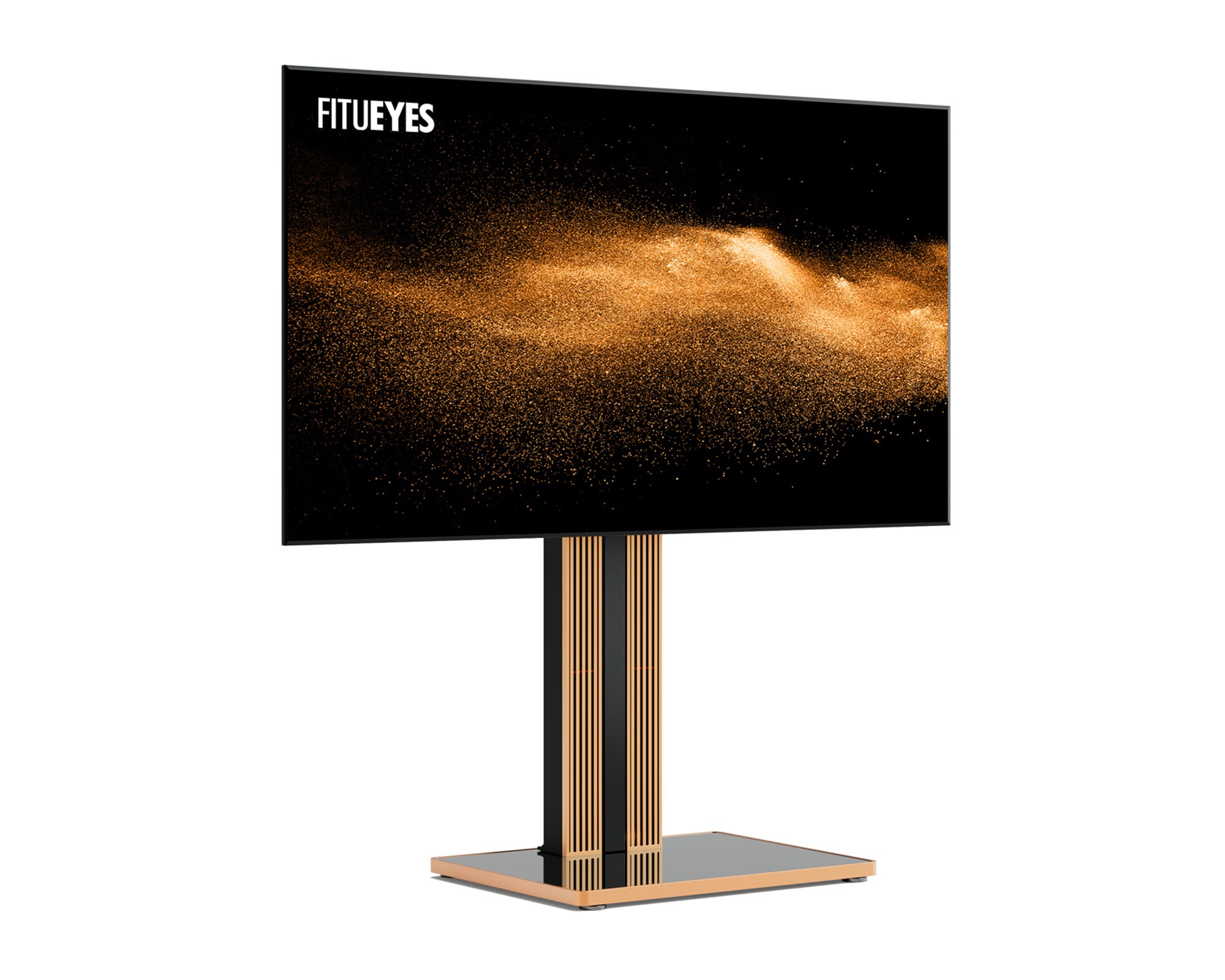

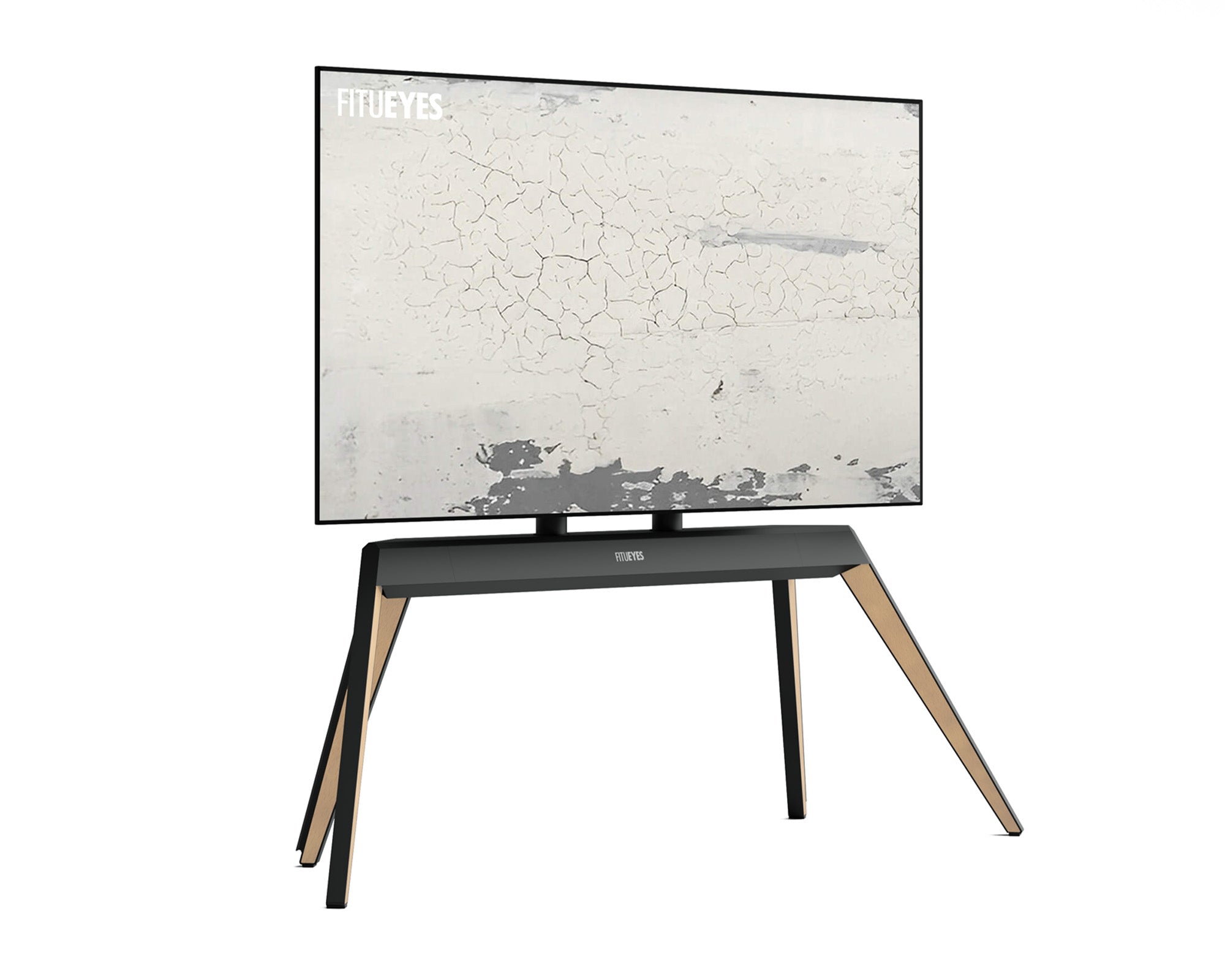
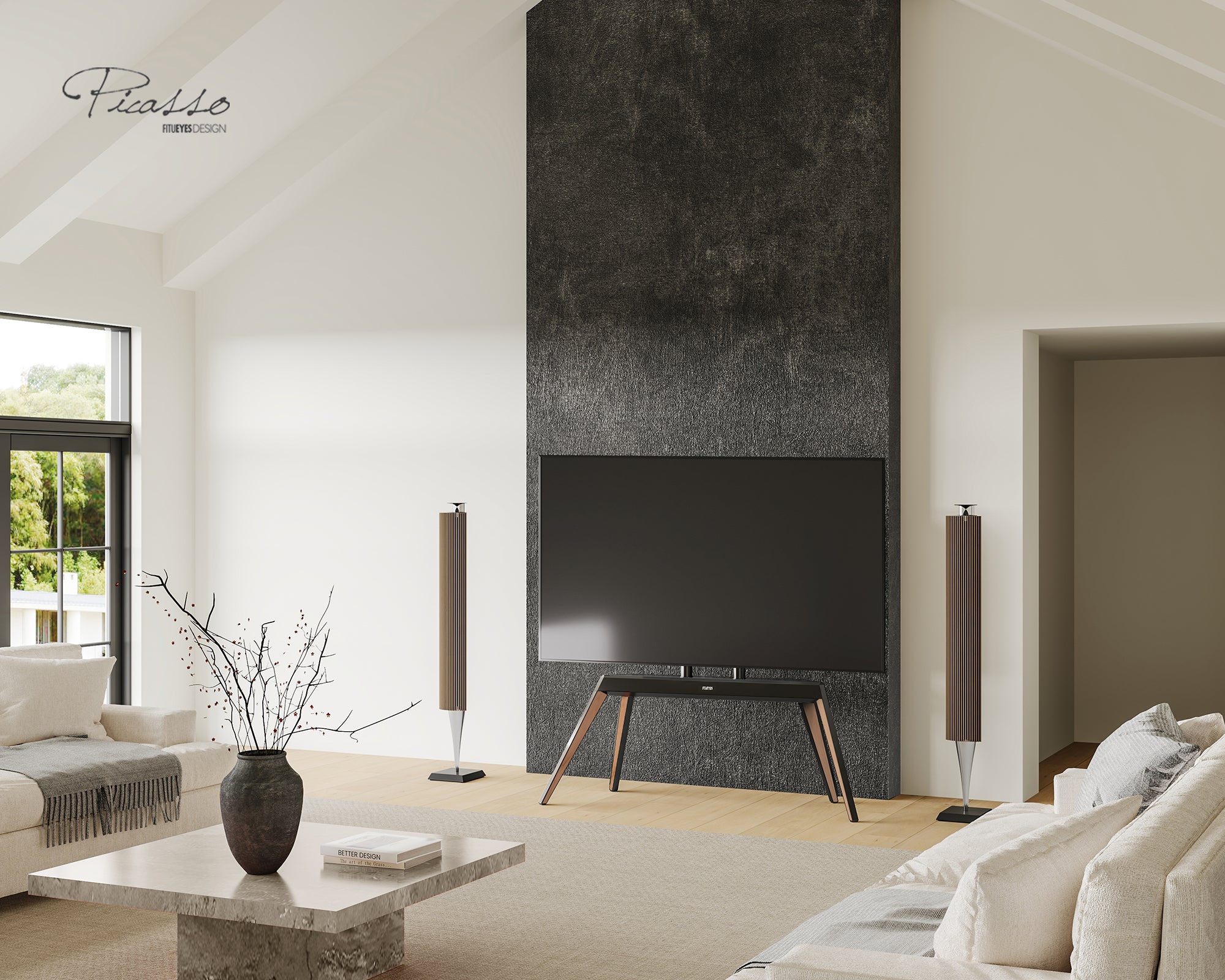
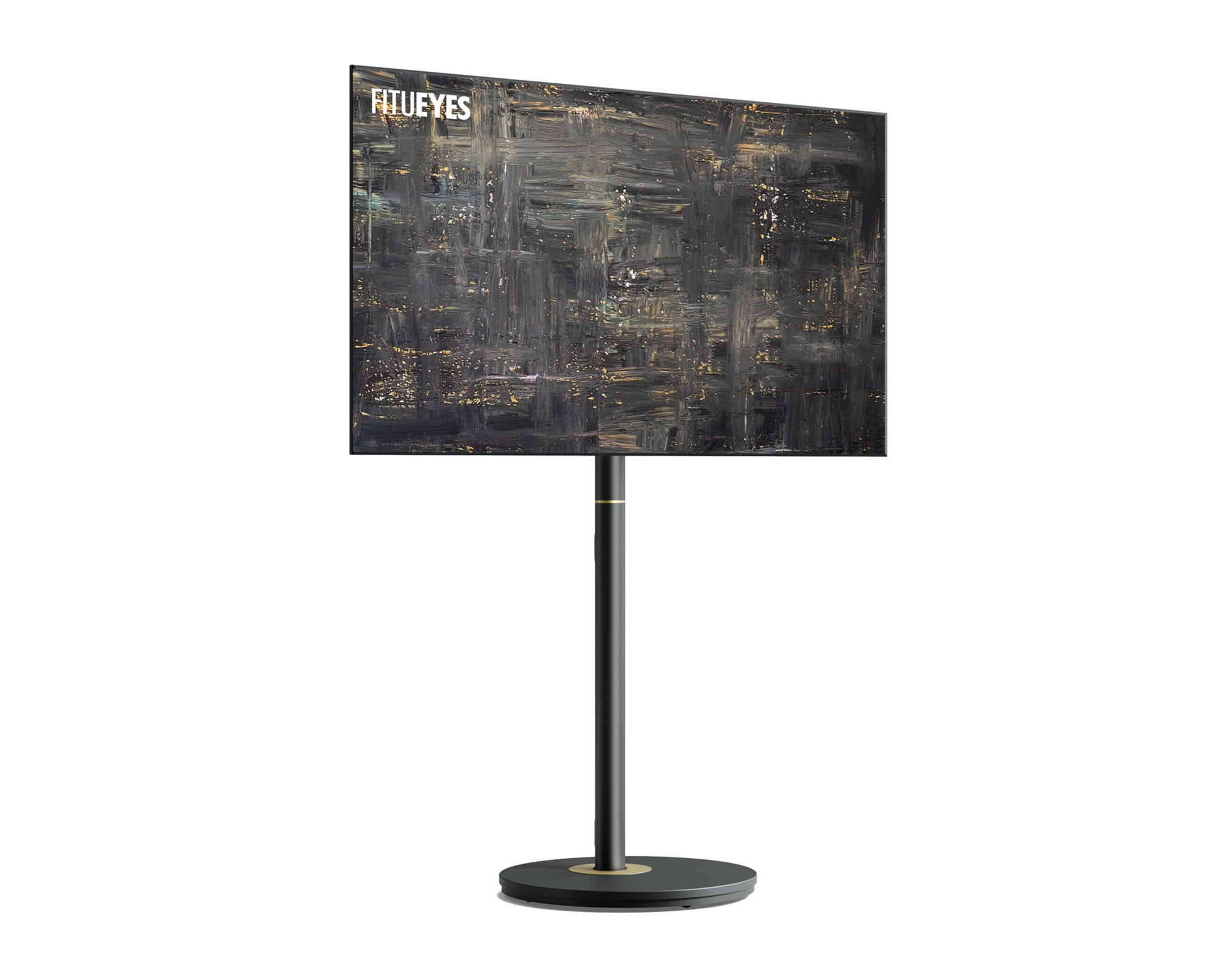
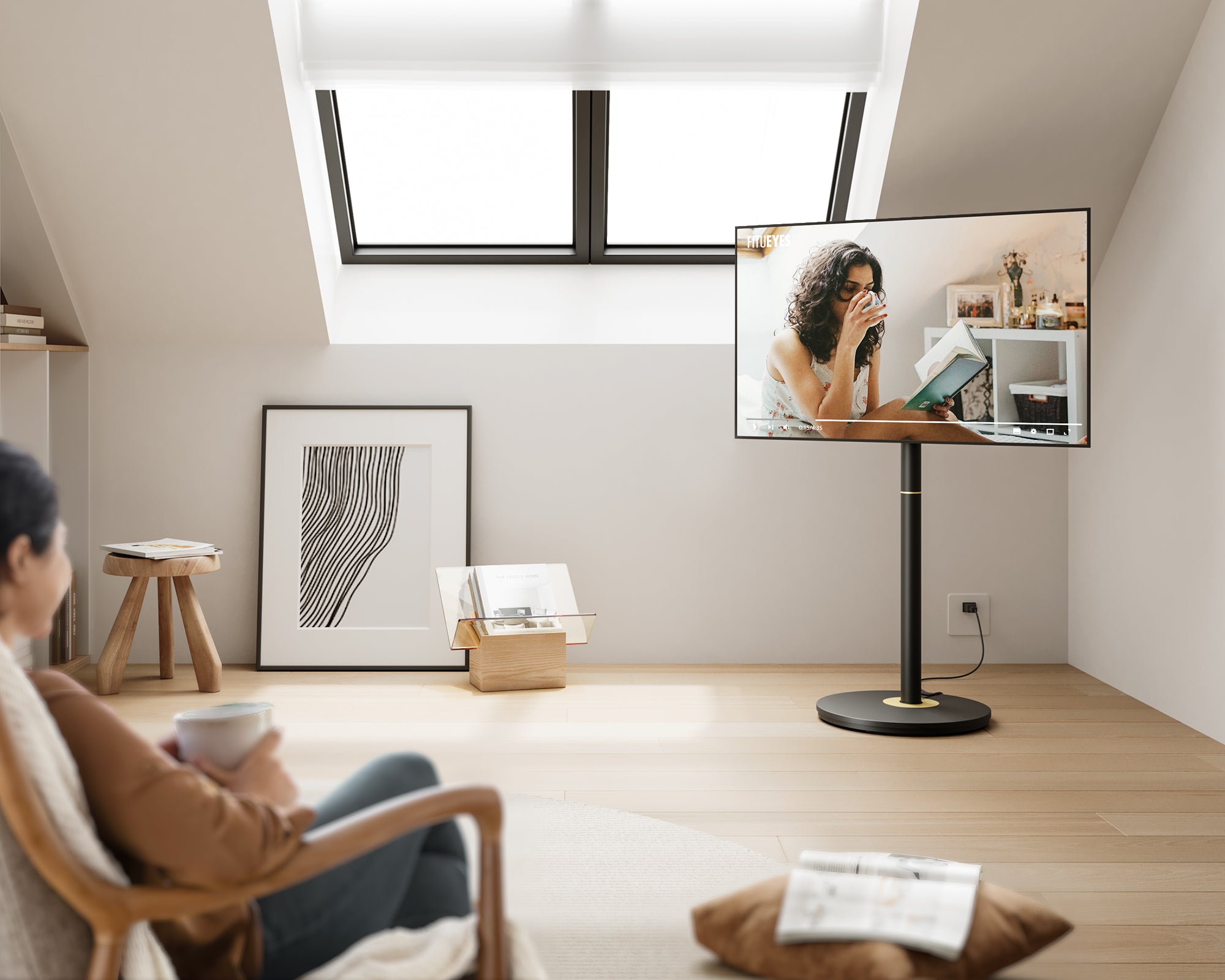
Leave a comment
All comments are moderated before being published.
This site is protected by hCaptcha and the hCaptcha Privacy Policy and Terms of Service apply.